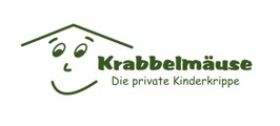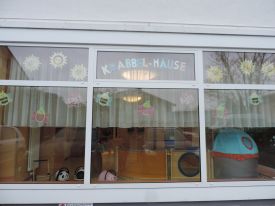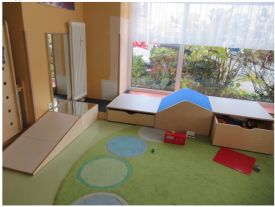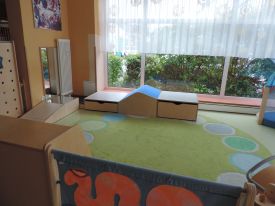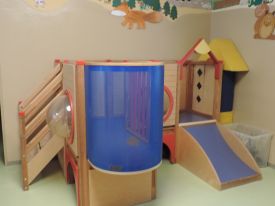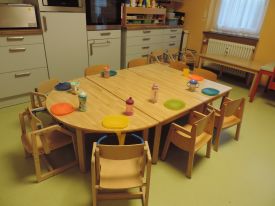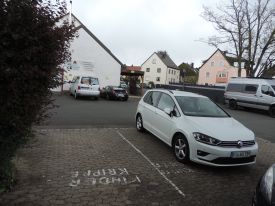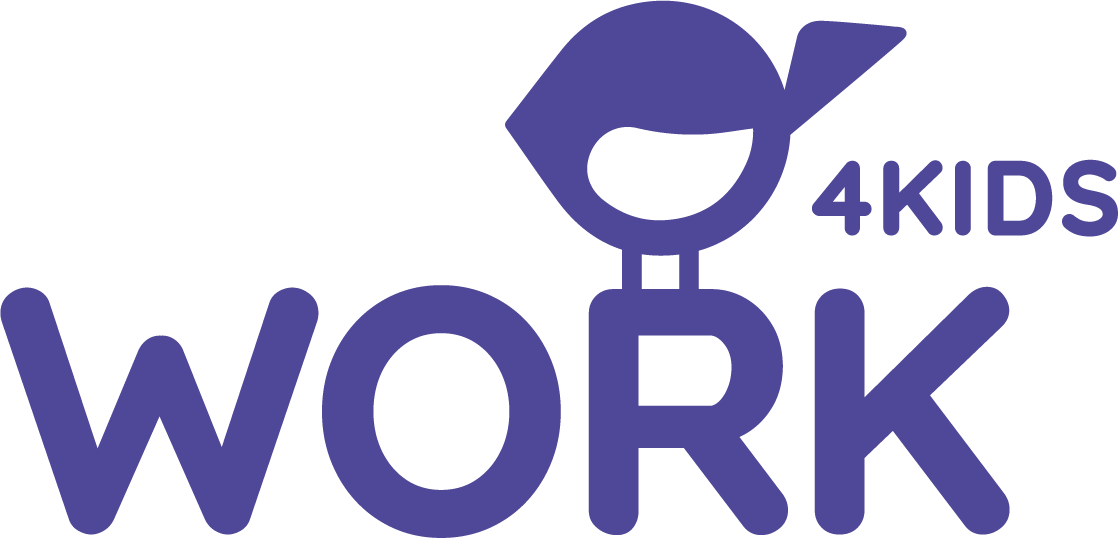Basics
The child builds up through play. Children's play is a prerequisite and driving force for their development. In it, it actively engages with its environment.
It develops its mental and physical abilities. Endurance, concentration and the willingness to make an effort are increasingly developed. Through play, he reflects on his environment and practices social skills in a playful way.
The child builds social relationships in the group, practices making agreements, being considerate of others and learning from others. The prerequisite for this is a supportive environment that reflects his living environment as well as offering space for social interaction and free but also supervised play.
Through analytical observation, the people caring for them find out which ones
Importance of certain topics, roles, objects or characters for the children.
It is the adult's job to take up these points of interest, to open up appropriate employment opportunities for the children and to carefully accompany their play.
Of course, our little ones are always there too, be it on walks or on an excursion. They are part of it and are integrated into everyday life, just like in the family.
The strong need for sleep and rest, especially initially, can be taken into account by having a separate relaxation room and taking individual rhythms into account.
As children get older, they take more active part in the events in the group. The older ones are encouraged to pay attention to our toddlers, who, stimulated by everyday group life and/or on their own initiative, begin to conquer their environment.
Most of our crawling mice sleep in our bedroom, there is always someone there for them until they fall asleep. We don't let our little ones out of our sight during bedtime.
Our almost-kindergarten children organize a new world of adventure and experience that goes beyond the family one.
The focus of the work is on play as the fundamental form of life and learning for this age group. The attempt is made, above all, with different play materials, in different play and adventure groups, alternating between free play and controlled activities, between activity and leisure, to offer the children a space of experience that allows them to actively engage with the environment in their social and social life objective requirements.
The game offerings are not primarily based on technical learning objectives, but rather
more on the children's living situations. In the one to two years we try to enable the children to do the following three points:
1. to think, act and decide responsibly for oneself (ego competence)
2. to be able to grasp social and societal issues; Developing tolerance, respect and responsibility with others (social skills)
3. Be able to understand the material areas of the environment and be able to make judgments and act (expertise).
In addition to acquiring skills, this is also intended to make it easier for our protégés to settle into the kindergarten world.

